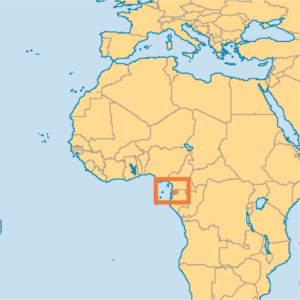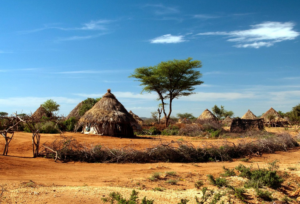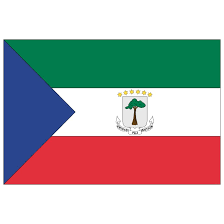Equatorial Guinea is a textbook case of the resource curse: The country’s leaders have squandered its oil wealth while its people have languished. President Teodoro Obiang Nguema Mbasogo, recently marked the 33rd anniversary of the coup that brought him to power n 1979. So much for democracy and fair play.
Under the previous regime of Francisco Macías Nguema the country was nicknamed “the Dachau of Africa”. More than a third of Equatorial Guinea’s population fled to other countries to escape his brutal reign. He was known to order entire families and villages executed. The country’s instruments of repression (military, presidential bodyguard) were entirely controlled by Macías Nguema’s relatives and clan members.
The president’s paranoid actions brought on a reign of terror that included banning use of the word “intellectual” and destroying boats (fishing was banned). Macías Nguema was the centre of an extremepersonality cult most likely fueled by his consumption of copious amounts of ‘bhang’ (an intoxicant) and iboga (an hallucinogenic) and assigned himself titles such as the ‘Unique Miracle’ and ‘Grand Master of Education, Science, and Culture’. Not the best way for a fledgling democracy to start.
Up to 1/3 of the country’s population.were killed. The economy collapsed, and skilled citizens and foreigners left. The current president Teodora Obiang deposed Macías Nguema on August 3, 1979, in a bloody coup.
The GDP of this country has shot up more than 125-fold since the mid-1990s, when oil was first discovered there, elevating its wealth per capita to the highest level of any country in sub-Saharan Africa. Meanwhile, the proportion of government spending dedicated to health and education in Equatorial Guinea has fallen well below the regional average.
Rather than benefiting the people, vast sums of the country’s oil revenues have gone to bankroll personal purchases for President Obiang, including two mansions in suburban Washington. Obiang’s eldest son allegedly spent more on houses and cars in the United States and South Africa between 2004 and 2006 than the government did on the entire education sector in 2005. Corruption is endemic.(HRW Report)
And as if mismanagement were not enough, Obiang’s government has overseen a litany of human rights violations, including forced evictions and rampant police torture. In terms of human rights, the country is clearly a failed state. Needless to say, gay citizens cower in fear of the police.
Severe corruption in Equatorial Guinea
See this travel advisory
No LGBT rights
















